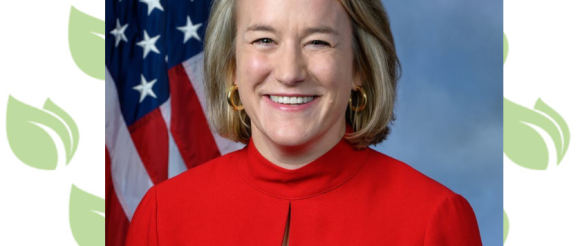Opinion: Farm bill needs to incentivize collaboration, innovation to implement ‘climate-smart’ conservation

Farmers in Illinois and all across the country are increasingly confronting the challenge of climate change by implementing “climate-smart” conservation practices, like cover cropping, reduced tillage, and improved nutrient management. Across the Midwest, cover crop usage has increased fourfold since 2011. Despite this increase, the practice is only found on just over 7.2 percent of Midwest cropland acres. Federal and state policies have helped drive this increase – helping producers offset the costs and manage the risks of adopting conservation practices. Conservation programs at the U.S. Department of Agriculture (USDA), like the Environmental Quality Incentives Program (EQIP), provide growers with financial and technical assistance to help them adopt climate-smart practices. But if we want to see continued growth, we need to continue to provide growers with flexible and innovative tools and incentives. That’s where the Farm Bill comes into play. Reauthorized roughly every five years, the Farm Bill provides Congress with an opportunity to examine agriculture policy, decide what is or isn’t working, and make necessary changes. One of the consistent issues raised during Farm Bill negotiations is funding – or the lack of it. For example, Farm Bill conservation programs are historically oversubscribed, funding only about one-third of farmers who apply. Fortunately, Congress took a historic step in 2022 with the passage of the Inflation Reduction Act (IRA) – providing nearly $20 billion in additional funding for these widely supported programs. I’ve been leading the charge in the House to ensure that this funding remains available to help the producers who are lining up to adopt climate-smart agriculture practices. But public funding is only half the battle. We also need to make sure that we have the right programs and policies in place to leverage the tremendous amount of private-sector interest that is driving the transition to climate-smart agriculture as well. I hear constantly from producers who are eager to adopt conservation practices but who find that existing federal incentives don’t work for their farms or operations. Fortunately, a number of companies and nonprofits are working to provide farmers with the right tools, coupled with financial support from USDA, to adopt new, more regionally specific practices in their operations. In Illinois, PepsiCo is working with the Illinois Corn Growers Association, Field to Market, the Environmental Defense Fund, Archer Daniels Midland, and a number of other companies and organizations to provide growers with innovative financial incentives. The project was recently awarded a $70 million USDA Partnerships for Climate-Smart Commodities grant, which will be matched by over $137 million in partner contributions. Another example of collaboration and innovation driven by the Farm Bill can be found in Macon, Piatt, and DeWitt counties in Illinois. The Nature Conservancy and the City of Decatur are partnering on a USDA Regional Conservation Partnership Program (RCPP) grant to drive the adoption of cover crops, reduced tillage, and nutrient management practices. This project provides enhanced financial incentives, such as lump-sum payments for enrolling in test plots, a waiver from USDA requirements that disqualify certain growers, and up to 100 percent cost share. These innovative projects, where contract length, payments, and other factors can be customized to farmers’ unique situations, are supported by RCPP – which allows companies, nonprofits, and other partners to work directly with growers to design locally-led conservation projects. The program has been tweaked over time, and additional changes may be needed in the upcoming Farm Bill reauthorization, but Congress must ensure that the program’s Alternative Funding Arrangements, or grant program, is maintained. While traditional conservation programs like EQIP may work for many farmers, others want a more customized approach that can only be supported at scale through RCPP. Congress has done its job by boosting funding for these vital programs through the IRA, and we can build on the great work farmers are doing here in Illinois and across the country by further encouraging the private sector to support their conservation efforts. In my role on the House Agriculture Committee, I’ll keep pushing for good policies that invite agribusiness to the table and leverage new tools being developed right here in our nation’s ‘Ag Tech Corridor.’ Protecting these vital investments in conservation will continue to build on the important work being done through public-private partnerships and highlight the ingenuity of Illinois farmers as we innovate our way out of the climate crisis. Congresswoman Nikki Budzinski is a freshman member of the U.S. House of Representatives serving the 13th District of Illinois, which includes Champaign, Decatur, Springfield, the Metro East, and dozens of communities in between. Budzinski is a member of the House Committee on Agriculture and the House Committee on Veterans Affairs.
